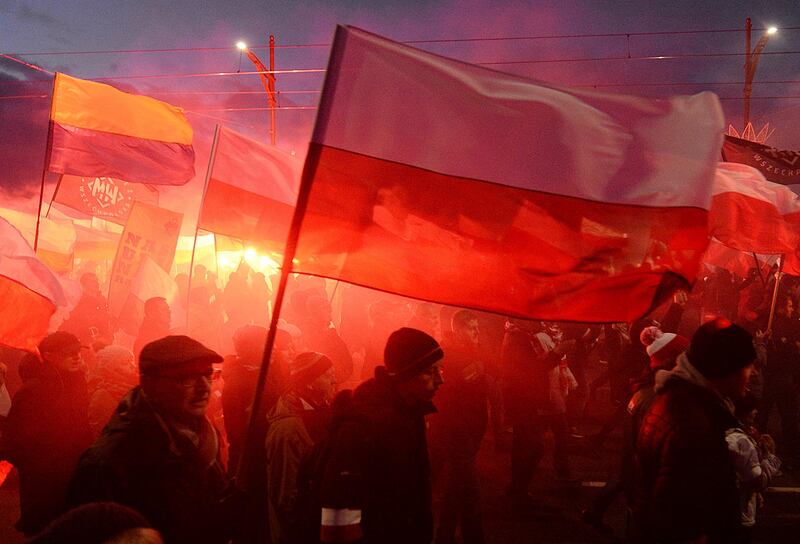Tens of thousands of nationalists marched in a demonstration organised by far-right groups in Warsaw Saturday, as Poles celebrated their country's independence day.
The far-right march was one of many events marking Poland's rebirth as a nation in 1918 after being wiped off the map for 123 years. Earlier in the day, President Andrzej Duda presided over state ceremonies also attended by European Union president Donald Tusk, a former Polish prime minister.
But the far-right march has become the largest independence day event in recent years, overshadowing official state observances and other patriotic events. Some participants expressed sympathy for xenophobic or white supremacist ideas, with one banner reading, ‘White Europe of brotherly nations’.
Participants marched under the slogan "We Want God," words from an old Polish religious song that president Donald Trump quoted during a visit to Warsaw earlier this year. Speakers spoke of standing against liberals and defending Christian values.
Many carried the national white-and-red flag as others set off flares and firecrackers, filling the air with red smoke. Some also carried banners depicting a falanga, a far-right symbol dating to the 1930s.
Police estimated that 60,000 people took part. Many were young men, some with their faces covered or with beer bottles in hand, but families and older Poles also participated.
The march has become one of the largest such demonstration in Europe, and on Saturday it drew far-right leaders from elsewhere in Europe, including Tommy Robinson from Britain and Roberto Fiore from Italy.
State broadcaster TVP, which reflects the conservative government's line, called it a “great march of patriots”, and in its broadcasts described the event as one that drew mostly regular Poles expressing their love of Poland, not extremists.
“It was a beautiful sight,” interior minister Mariusz Blaszczak said. “We are proud that so many Poles have decided to take part in a celebration connected to the independence day holiday.”






